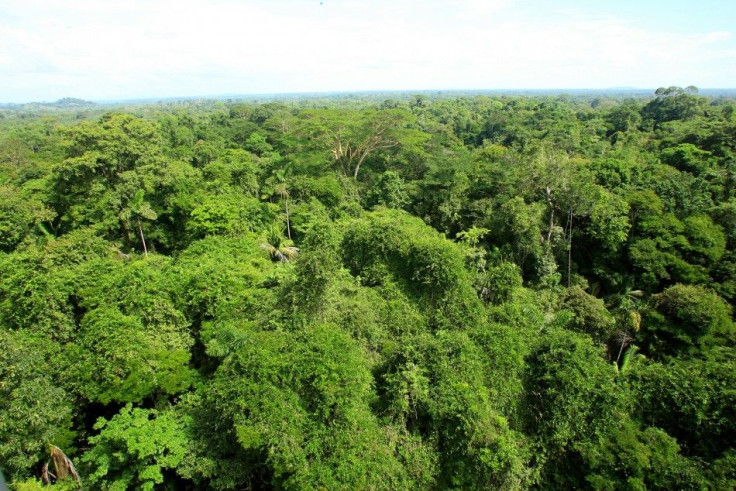Tropical Forests May Not Be Saving Us From Global Warming After All: Study

Until now, tropical forests were considered to be among the planet's strongest allies in the battle against global warming. But a new study suggests that these forests may be releasing carbon into the earth's atmosphere, in amounts large enough to mitigate the carbon-absorbing effects.
A six-year experiment in a rainforest at the Smithsonian Tropical Research Institute in Panama, Central America, found that dead plant material that falls to the ground in a tropical forest triggers an effect called "priming" where fresh carbon from plant litterfall provides energy to micro-organisms, which in turn stimulates the decomposition of carbon stored in the soil.
All told, large quantities of the carbon absorbed by the trees large in tropical forests could be lost from the soil. A 30% increase in litterfall is projected to release about 0.6 tons of carbon per hectare from lowland tropical forest soils each year.
Lead author Dr. Emma Sayer from the UK's Centre for Ecology & Hydrology said in a press statement, "Most estimates of the carbon sequestration capacity of tropical forests are based on measurements of tree growth. Our study demonstrates that interactions between plants and soil can have a massive impact on carbon cycling. Models of climate change must take these feedbacks into account to predict future atmospheric carbon dioxide levels."
Increased tree growth in tropical forests has been long believed to help offset the human-based introduction of carbon dioxide into the earth's atmosphere, but the study points out that enhanced tree growth could be cancelling out some of the effects by producing more litterfall.
"Soils are thought to be a long-term store for carbon but we have shown that these stores could be diminished if elevated carbon dioxide levels and nitrogen deposition boost plant growth," Sayer said.
"This priming effect essentially means that older, relatively stable soil carbon is being replaced by fresh carbon from dead plant matter, which is easily decomposed," said Co-author Dr Edmund Tanner, from the University of Cambridge.
"We still don't know what consequences this will have for carbon cycling in the long term."
© Copyright IBTimes 2024. All rights reserved.






















